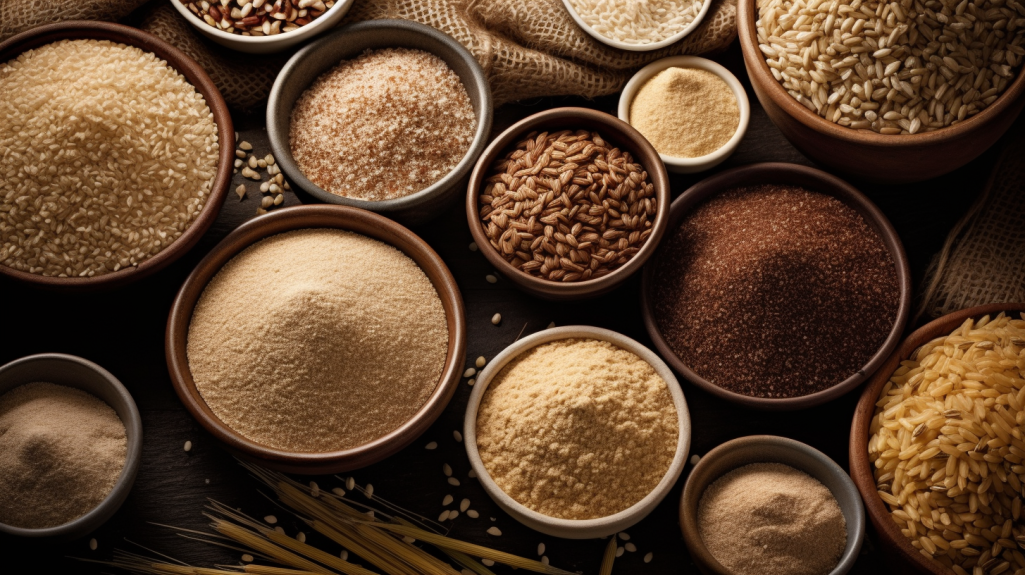In the quest for a healthier lifestyle, we often focus on the big players like proteins, vitamins, and minerals. However, there’s a humble hero that frequently goes unnoticed but plays a vital role in our well-being – fiber. Despite its lack of glamour, fiber is an unsung champion in the realm of nutrition, offering an array of health benefits that are hard to ignore. In this article, we will delve into the importance of fiber in your diet and why it should be a cornerstone of your everyday meals.
Understanding Fiber: Nature’s Broom
Fiber is a type of carbohydrate that the body can’t digest or absorb. It’s found in plant-based foods, such as fruits, vegetables, whole grains, legumes, and nuts. There are two main types of fiber – soluble and insoluble – both of which are crucial for different functions in the body.
- Soluble Fiber: This type dissolves in water, forming a gel-like substance. It helps in controlling blood sugar levels and lowering cholesterol. Foods rich in soluble fiber include oats, beans, lentils, fruits, and vegetables.
- Insoluble Fiber: Insoluble fiber adds bulk to the stool and prevents constipation by promoting regular bowel movements. Whole grains, vegetables, and the skin of fruits are excellent sources of insoluble fiber.
The Health Benefits of Fiber
- Digestive Health: One of the primary benefits of fiber is its ability to promote a healthy digestive system. It prevents constipation by softening the stool and increasing its bulk, making it easier to pass. This aids in preventing various digestive disorders, including diverticulosis and irritable bowel syndrome.
- Weight Management: High-fiber foods are usually low in calories and take longer to chew, promoting a feeling of fullness. This feeling of satiety helps in controlling overall food intake, which is beneficial for weight management and preventing overeating.
- Heart Health: Soluble fiber has been linked to lower levels of LDL cholesterol, often referred to as “bad” cholesterol. By reducing cholesterol levels, fiber plays a significant role in preventing heart diseases, heart attacks, and strokes.
- Blood Sugar Control: Fiber, particularly soluble fiber, slows down the absorption of sugar, preventing rapid spikes and drops in blood sugar levels. This is especially important for individuals with diabetes, as it helps in managing their condition effectively.
- Gut Health: Fiber acts as a prebiotic, providing nourishment for the beneficial bacteria in your gut. A healthy gut microbiota is associated with a stronger immune system, improved mood, and reduced risk of various diseases.
Incorporating Fiber into Your Diet
Now that we understand the importance of fiber, let’s talk about how to incorporate it into our daily diet:
- Eat Whole Grains: Choose whole grains like brown rice, quinoa, whole wheat, and oats over refined grains. Whole grains are rich in fiber and other essential nutrients.
- Load Up on Fruits and Vegetables: Aim to fill half your plate with a variety of colorful fruits and vegetables. They not only provide fiber but also deliver a plethora of vitamins and minerals.
- Include Legumes: Beans, lentils, and peas are excellent sources of both soluble and insoluble fiber. They are versatile and can be added to soups, salads, or main dishes.
- Nuts and Seeds: Snack on nuts and seeds like almonds, chia seeds, and flaxseeds. They are not only high in fiber but also provide healthy fats and protein.
- Read Food Labels: When shopping, check food labels for fiber content. Opt for products that are high in fiber and low in added sugars and unhealthy fats.
Conclusion
Incorporating an adequate amount of fiber into your diet is a simple yet powerful step towards better health. From supporting digestion to reducing the risk of chronic diseases, the benefits of fiber are immense. So, the next time you plan your meals, make sure to include a variety of fiber-rich foods. Your body will thank you with improved well-being, energy, and vitality.

